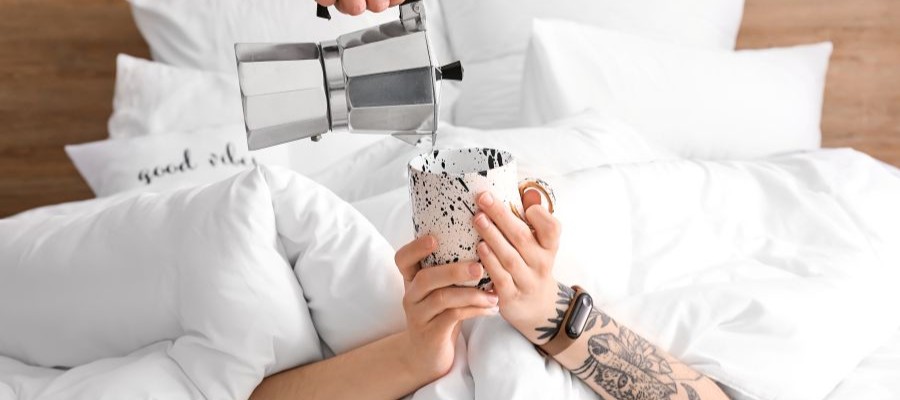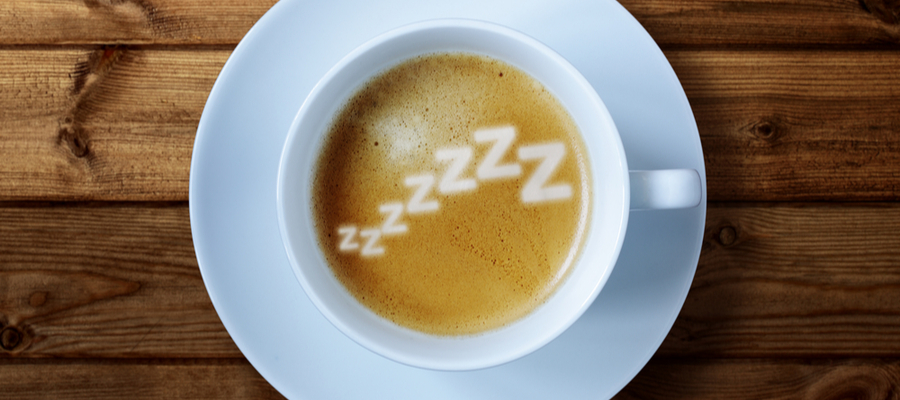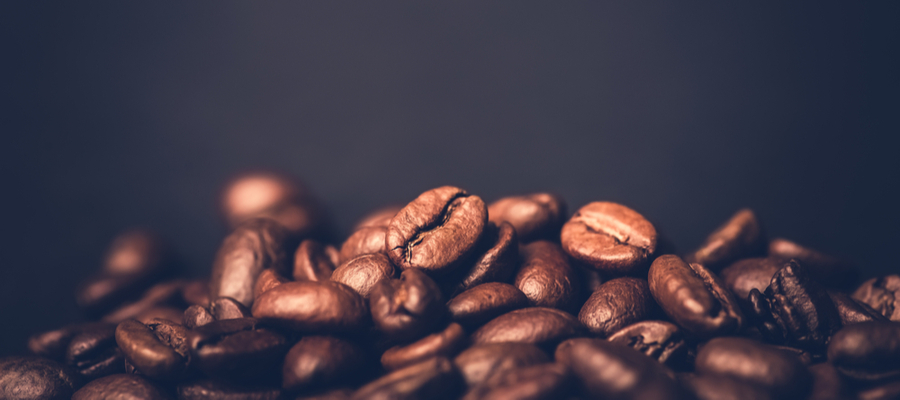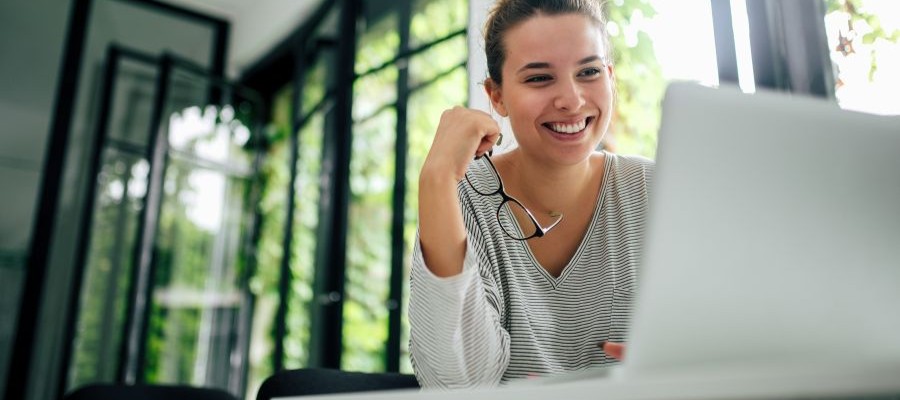
Caffeine and Sleep: 3 FAQ’s
Adenosine is a naturally occurring chemical in our bodies that works to promote sleep. When you feel tired, high levels of adenosine are circulating through your body. Once asleep, adenosine levels begin to drop.
Caffeine can make you feel less drowsy by competing with adenosine for receptors in your brain. However, caffeine can’t lower adenosine. It can also have an obstructive effect on your sleep. This is good to keep in mind as we look at three frequently asked questions about coffee and sleep.
Can caffeine replace sleep?

Caffeine cannot replace sleep. No matter how much coffee you drink, it can only temporarily ward off the feeling of sleepiness. Caffeine is not able to mitigate the effects of severe sleep loss.
The use of caffeine as a substitute for sleep has been investigated in numerous studies. In one such study, participants’ sleep was restricted to 5 hours per night for five days. During the day, one group of participants were given 400 mg of caffeine per day (equal to about 2 cups of coffee). Meanwhile, another group was given a placebo. Hereafter, all participants were subjected to cognitive tests. On the first days, the group that had been given caffeine did notably better on tests. Over the days, however, the effect disappeared. So while caffeine can help cognitive function on the short term, it cannot replace sleep.
It is not completely clear why caffeine is unable to substitute for sleep. It is well known, however, that almost all animals have REM sleep, which is the sleep stage most connected to dreaming. This would suggest that animals like humans need to dream.
Will caffeine keep me up all night?

Ever had that feeling “I had too much caffeine and now I can’t sleep”? – Well, there’s definitely something to it. Caffeine begins to work quickly once consumed, with most people noticing the peak effects after just 15 to 45-minutes.
However, caffeine has a four to six-hour half-life so the effects can linger for quite some time. If you are sensitive to caffeine or have trouble falling asleep at night, it may be best to avoid caffeine in the afternoon.
A study conducted from a US nationally representative sample found that high caffeine consumption is associated with difficulty staying asleep and thus associated with insomnia. So while the effects of caffeine are quite individual, it is best stick to the recommended daily intake of no more than 400 mg.
What is a “Coffee Nap” and does it really work?

There is evidence that drinking a cup of coffee (about 150mg caffeine) before taking a short power nap (20 minutes or less) is doubly effective in boosting energy. Since sleep reduces adenosine levels in your body, taking a short nap lowers the amount of adenosine that caffeine must compete with for the receptors in your brain.
It takes about 15-20 minutes for the caffeine to take effect which makes a 20-minute power nap perfect as you’ll wake from your nap before entering into a deep sleep stage (which could leave you feeling groggy) as the caffeine starts to kick in.
This is why a coffee + nap combo may be more effective in raising your energy levels than just coffee or a nap alone. Beware of too much caffeine – 200mg or more and the positive effects of this combination decrease.

Bottom line – Sleep is more performance enhancing than coffee!
While coffee remains the weapon of choice for many to dispel drowsiness, you are much better off having a power nap than a cup of joe next time the sluggishness sets in.
Naps are scientifically proven to be more performance enhancing than caffeine. Read more about the benefits of napping here.
